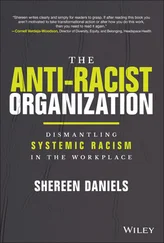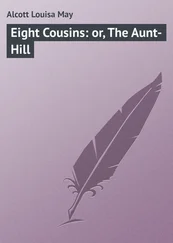To bore his eyeball with a flaming brand.
Beneath his frowning forehead lay his eye;
For only one did the vast frame supply—
But that a globe so large, his front it fill’d,
Like the sun’s disk or like a Grecian shield.
The stroke succeeds; and down the pupil bends:
This vengeance follow’d for our slaughter’d friends.
But haste, unhappy wretches, haste to fly!
Your cables cut, and on your oars rely!
Such, and so vast as Polypheme appears,
A hundred more this hated island bears:
Like him, in caves they shut their woolly sheep;
Like him, their herds on tops of mountains keep;
Like him, with mighty strides, they stalk from steep to steep
And now three moons their sharpen’d horns renew,
Since thus, in woods and wilds, obscure from view,
I drag my loathsome days with mortal fright,
And in deserted caverns lodge by night;
Oft from the rocks a dreadful prospect see
Of the huge Cyclops, like a walking tree:
From far I hear his thund’ring voice resound,
And trampling feet that shake the solid ground.
Cornels and salvage berries of the wood,
And roots and herbs, have been my meager food.
While all around my longing eyes I cast,
I saw your happy ships appear at last.
On those I fix’d my hopes, to these I run;
’Tis all I ask, this cruel race to shun;
What other death you please, yourselves bestow.’
“Scarce had he said, when on the mountain’s brow
We saw the giant shepherd stalk before
His following flock, and leading to the shore:
A monstrous bulk, deform’d, depriv’d of sight;
His staff a trunk of pine, to guide his steps aright.
His pond’rous whistle from his neck descends;
His woolly care their pensive lord attends:
This only solace his hard fortune sends.
Soon as he reach’d the shore and touch’d the waves,
From his bor’d eye the gutt’ring blood he laves:
He gnash’d his teeth, and groan’d; thro’ seas he strides,
And scarce the topmost billows touch’d his sides.
“Seiz’d with a sudden fear, we run to sea,
The cables cut, and silent haste away;
The well-deserving stranger entertain;
Then, buckling to the work, our oars divide the main.
The giant harken’d to the dashing sound:
But, when our vessels out of reach he found,
He strided onward, and in vain essay’d
Th’ Ionian deep, and durst no farther wade.
With that he roar’d aloud: the dreadful cry
Shakes earth, and air, and seas; the billows fly
Before the bellowing noise to distant Italy.
The neigh’ring Aetna trembling all around,
The winding caverns echo to the sound.
His brother Cyclops hear the yelling roar,
And, rushing down the mountains, crowd the shore.
We saw their stern distorted looks, from far,
And one-eyed glance, that vainly threaten’d war:
A dreadful council, with their heads on high;
(The misty clouds about their foreheads fly;)
Not yielding to the tow’ring tree of Jove,
Or tallest cypress of Diana’s grove.
New pangs of mortal fear our minds assail;
We tug at ev’ry oar, and hoist up ev’ry sail,
And take th’ advantage of the friendly gale.
Forewarn’d by Helenus, we strive to shun
Charybdis’ gulf, nor dare to Scylla run.
An equal fate on either side appears:
We, tacking to the left, are free from fears;
For, from Pelorus’ point, the North arose,
And drove us back where swift Pantagias flows.
His rocky mouth we pass, and make our way
By Thapsus and Megara’s winding bay.
This passage Achaemenides had shown,
Tracing the course which he before had run.
“Right o’er against Plemmyrium’s wat’ry strand,
There lies an isle once call’d th’ Ortygian land.
Alpheus, as old fame reports, has found
From Greece a secret passage under ground,
By love to beauteous Arethusa led;
And, mingling here, they roll in the same sacred bed.
As Helenus enjoin’d, we next adore
Diana’s name, protectress of the shore.
With prosp’rous gales we pass the quiet sounds
Of still Elorus, and his fruitful bounds.
Then, doubling Cape Pachynus, we survey
The rocky shore extended to the sea.
The town of Camarine from far we see,
And fenny lake, undrain’d by fate’s decree.
In sight of the Geloan fields we pass,
And the large walls, where mighty Gela was;
Then Agragas, with lofty summits crown’d,
Long for the race of warlike steeds renown’d.
We pass’d Selinus, and the palmy land,
And widely shun the Lilybaean strand,
Unsafe, for secret rocks and moving sand.
At length on shore the weary fleet arriv’d,
Which Drepanum’s unhappy port receiv’d.
Here, after endless labors, often toss’d
By raging storms, and driv’n on ev’ry coast,
My dear, dear father, spent with age, I lost:
Ease of my cares, and solace of my pain,
Sav’d thro’ a thousand toils, but sav’d in vain
The prophet, who my future woes reveal’d,
Yet this, the greatest and the worst, conceal’d;
And dire Celaeno, whose foreboding skill
Denounc’d all else, was silent of the ill.
This my last labor was. Some friendly god
From thence convey’d us to your blest abode.”
Thus, to the list’ning queen, the royal guest
His wand’ring course and all his toils express’d;
And here concluding, he retir’d to rest.
But anxious cares already seiz’d the queen:
She fed within her veins a flame unseen;
The hero’s valor, acts, and birth inspire
Her soul with love, and fan the secret fire.
His words, his looks, imprinted in her heart,
Improve the passion, and increase the smart.
Now, when the purple morn had chas’d away
The dewy shadows, and restor’d the day,
Her sister first with early care she sought,
And thus in mournful accents eas’d her thought:
“My dearest Anna, what new dreams affright
My lab’ring soul! what visions of the night
Disturb my quiet, and distract my breast
With strange ideas of our Trojan guest!
His worth, his actions, and majestic air,
A man descended from the gods declare.
Fear ever argues a degenerate kind;
His birth is well asserted by his mind.
Then, what he suffer’d, when by Fate betray’d!
What brave attempts for falling Troy he made!
Such were his looks, so gracefully he spoke,
That, were I not resolv’d against the yoke
Of hapless marriage, never to be curst
With second love, so fatal was my first,
To this one error I might yield again;
For, since Sichaeus was untimely slain,
This only man is able to subvert
The fix’d foundations of my stubborn heart.
And, to confess my frailty, to my shame,
Somewhat I find within, if not the same,
Too like the sparkles of my former flame.
But first let yawning earth a passage rend,
And let me thro’ the dark abyss descend;
First let avenging Jove, with flames from high,
Drive down this body to the nether sky,
Condemn’d with ghosts in endless night to lie,
Before I break the plighted faith I gave!
No! he who had my vows shall ever have;
For, whom I lov’d on earth, I worship in the grave.”
She said: the tears ran gushing from her eyes,
And stopp’d her speech. Her sister thus replies:
“O dearer than the vital air I breathe,
Will you to grief your blooming years bequeath,
Condemn’d to waste in woes your lonely life,
Without the joys of mother or of wife?
Читать дальше












